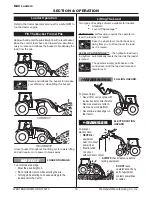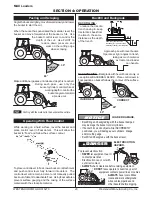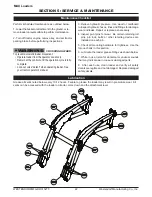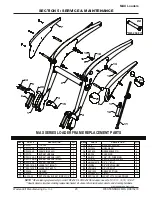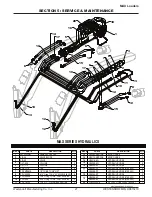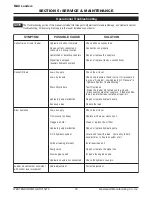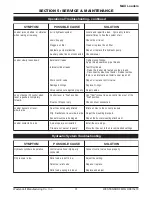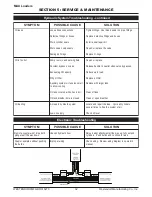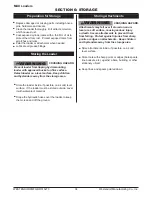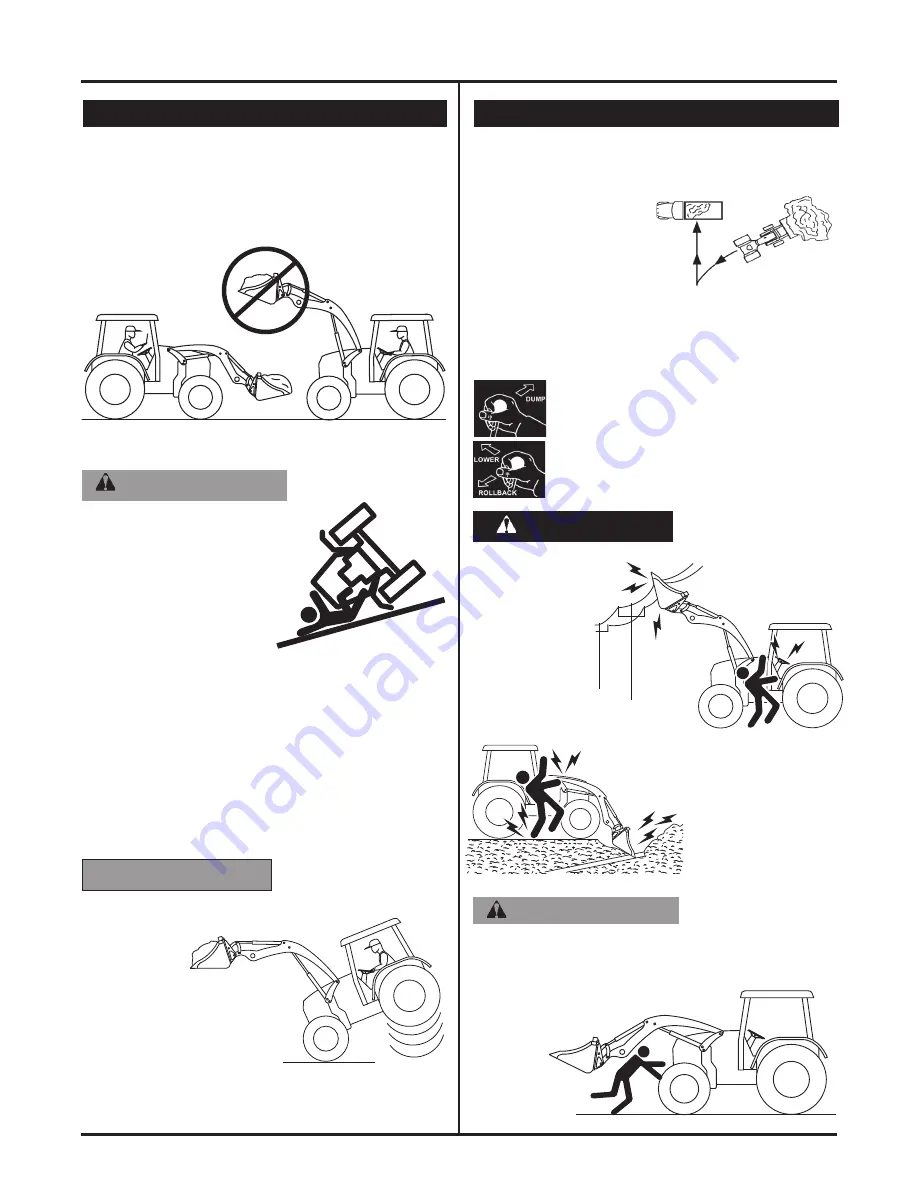
19
Westendorf Manufacturing Co., Inc.
WESTENDORFMFG RR315270
MAX Loaders
SECTION 4: OPERATION
LOADER DAMAGE.
To prevent damage
to loader and/or
tractor:
• Stop
loader
gradually
when lowering
heavy loads.
•
NEVER
drop a load
and “catch” hydraulically.
• Hydraulically stopping a load after it has gained downward
momentum can damage the loader and/or tractor.
Handle all raised loads with caution. Keep eyes on load
while raising or lowering to be sure the load does not fall
out of the back of the bucket.
NEVER
travel with a
raised load. Raise the
load when approaching
equipment. Keep loads
close to work area to
minimize travel time.
Keep loading area level
to prevent rollover. Do not raise load higher than required
while dumping.
Dump the load by moving the control level
outward.
After dumping the load, back away and
move the single lever control forward and
inward to lower and rollback the bucket.
CARRY LOAD LOW DON’T CARRY HIGH
Dumping The Load
Carrying The Load
Position the load as low as possible below the level of the
tractor hood for maximum stability and visibility.
Use extreme caution when operating on a slope. Keep
the load as low as possible. This keeps the center of
gravity low and provides maximum tractor stability.
To prevent
electrocution:
•
NEVER
let
equipment
near or
contact power
lines.
• Electrocution
can occur without direct contact.
•
ALWAYS
check clearance before
raising equipment.
•
DO NOT
leave op-
erator’s seat if any
part of equipment
contacts power lines
or cables.
ELECTROCUTION
HAZARD.
DANGER
Use “V” Method For Loading
CRUSHING
HAZARD.
To prevent death or serious injury:
•
NEVER
enter area under a raised loader or attachment.
• A raised loader can fall unexpectedly,
resulting in death or serious injury.
WARNING
CRUSHING
HAZARD.
To prevent tractor roll over:
• Travel at slow speed;
• Carry loads close to the ground;
• Avoid sharp turns and sudden
movements on slopes;
• Balance load so weight is
evenly distributed and load
is stable;
• Avoid holes, ditches and other obstructions which
may cause the tractor to rollover;
• Be extra careful when operating on slopes and do not
operate on excessively steep slopes;
• Do not exceed the load capacity of your equipment;
• Be certain tractor tire spacing and rear ballast are
correct before using equipment;
• Approach large round or square bales on a slope with
the tractor facing uphill.
WARNING
LOADER DAMAGE.
NOTICE














